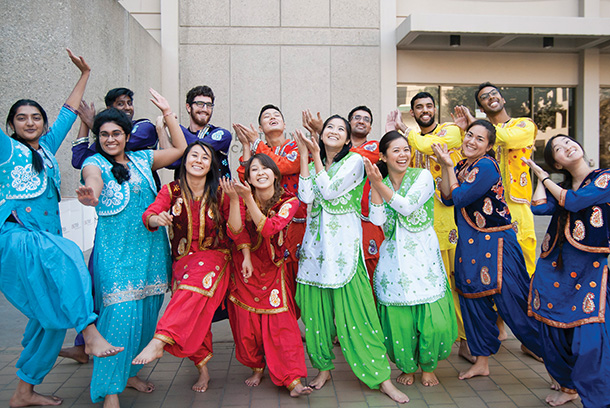Conducting hepatitis B screenings at local health fairs is one way that members of the Keck School of Medicine’s Asian Pacific American Medical Student Association (APAMSA) give back. The students join forces with the Asian Pacific Liver Center to check for the disease, which touches the lives of Asian and Asian-Americans disproportionately.
“We find that APAMSA provides great opportunities for us to actively help and give back to the community through mentorship and networking,” said Laurie Song, co-chair of the Keck School’s APAMSA chapter. “This allows for students in the club to feel at home on campus and makes us more well-rounded as medical students.”
APAMSA is one of several diverse student organizations at the Keck School, which has long felt that having such groups was a critical piece of its long-standing effort to enroll and retain a diverse student body.
“Diversity has always been part of the intrinsic fabric of the Keck School of Medicine of USC; it is a vital core of our DNA and that of the entire Trojan family,” said Henri Ford, MD, MHA, vice dean of medical education.
Many of the groups have, as part of their mission, a commitment to ensuring diversity among future generations of medical students and doctors. For example, members of the Student National Medical Association, an organization for medical students of color, make monthly visits to the nearby Tom Bradley Elementary School to give a science lesson, while the Latino Medical Student Association hosted a mentorship day in the fall for students from nearby community colleges, offering guidance about the application process to aspiring medical students.
And in addition to providing a source of fun and community, these groups provide a forum to tackle serious issues facing both minority students and the populations of patients they represent. The Keck School’s chapter of MedGLO, a national organization of gay, lesbian, bisexual and transgender medical students, organized a lunch talk on gender confirmation surgery and hosted a workshop for first-year students about talking to their patients about sexual orientation.
“Being part of MedGLO has provided me with the opportunity to work to enhance awareness and understanding regarding the way in which diverse cultural, psychosocial, economic, political, and historical factors come together to impact LGBTQ health,” said Justin Trop, who co-chairs the MedGLO chapter at the Keck School.
— Hope Hamashige


